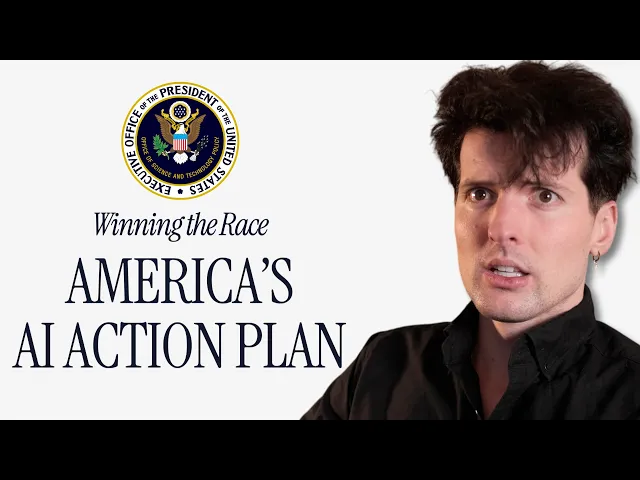Trump just announced his AI plan. It’s weird.

Trump's bizarre AI agenda raises questions
Donald Trump recently unveiled his artificial intelligence policy vision, and the tech world can't stop buzzing about its peculiar approach to AI regulation. In a video addressing his supporters, the former president outlined a strategy that combines traditional Republican free-market principles with unexpected nationalist elements. This juxtaposition has created a fascinating case study in how political figures are attempting to position themselves on perhaps the most transformative technology of our era.
Key Points
- Trump's AI policy attempts to balance deregulation with national security concerns, proposing a "Manhattan Project" approach while simultaneously promising to slash regulations
- His plan specifically targets China, suggesting enhanced export controls on AI technologies while paradoxically promoting American AI innovation
- The proposal includes unusual elements like eliminating Section 230 protections for AI companies and creating a government-run verification system for AI-generated content
The Nationalist Contradiction
The most revealing aspect of Trump's AI agenda is its fundamental contradiction: he simultaneously champions a hands-off regulatory approach while advocating for significant government intervention. This tension reflects a broader struggle within conservative political circles to reconcile free-market principles with growing concerns about national security and technological sovereignty.
Trump's call for a "Manhattan Project for AI" directly conflicts with his promise to slash regulations. The original Manhattan Project was arguably one of the most tightly controlled and heavily regulated government initiatives in American history. It represented the exact opposite of deregulation—it was centralized planning at an unprecedented scale. This contradiction exposes a growing reality in technology policy: the traditional partisan dividing lines on regulation are blurring as technologies like AI raise complex questions about security, competition, and American technological leadership.
Beyond the Political Theater
What's particularly interesting about Trump's AI policy is what it signals about the broader politicization of artificial intelligence. While previous technological revolutions—from personal computing to social media—eventually became political issues, AI is entering the political arena with unprecedented speed.
Consider the contrast with the early internet. In the 1990s, politicians on both sides of the aisle largely approached the internet with a light-touch regulatory philosophy. The 1996 Telecommunications Act and its famous Section 230 provision passed with broad bipartisan support. It took nearly two decades for the internet to become a deeply partisan issue.
AI, by contrast, is being politicized before it has
Recent Videos
How To Earn MONEY With Images (No Bullsh*t)
Smart earnings from your image collection In today's digital economy, passive income streams have become increasingly accessible to creators with various skill sets. A recent YouTube video cuts through the hype to explore legitimate ways photographers, designers, and even casual smartphone users can monetize their image collections. The strategies outlined don't rely on unrealistic promises or complicated schemes—instead, they focus on established marketplaces with proven revenue potential for image creators. Key Points Stock photography platforms like Shutterstock, Adobe Stock, and Getty Images remain viable income sources when you understand their specific requirements and optimize your submissions accordingly. Specialized marketplaces focusing...
Oct 3, 2025New SHAPE SHIFTING AI Robot Is Freaking People Out
Liquid robots will change everything In the quiet labs of Carnegie Mellon University, scientists have created something that feels plucked from science fiction—a magnetic slime robot that can transform between liquid and solid states, slipping through tight spaces before reassembling on the other side. This technology, showcased in a recent YouTube video, represents a significant leap beyond traditional robotics into a realm where machines mimic not just animal movements, but their fundamental physical properties. While the internet might be buzzing with dystopian concerns about "shape-shifting terminators," the reality offers far more promising applications that could revolutionize medicine, rescue operations, and...
Oct 3, 2025How To Do Homeless AI Tiktok Trend (Tiktok Homeless AI Tutorial)
AI homeless trend raises ethical concerns In an era where social media trends evolve faster than we can comprehend them, TikTok's "homeless AI" trend has sparked both creative engagement and serious ethical questions. The trend, which involves using AI to transform ordinary photos into images depicting homelessness, has rapidly gained traction across the platform, with creators eagerly jumping on board to showcase their digital transformations. While the technical process is relatively straightforward, the implications of digitally "becoming homeless" for entertainment deserve careful consideration. The video tutorial provides a step-by-step guide on creating these AI-generated images, explaining how users can transform...
